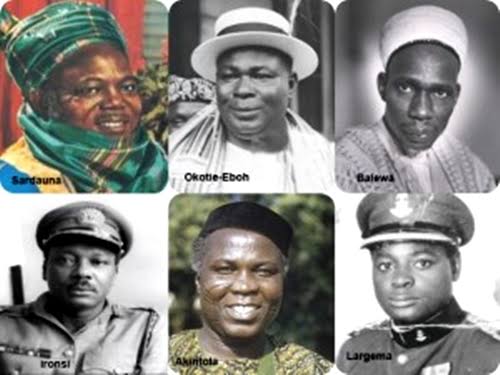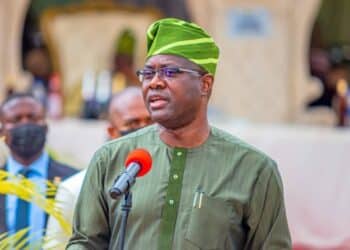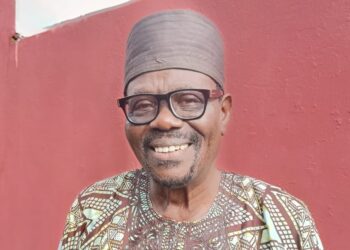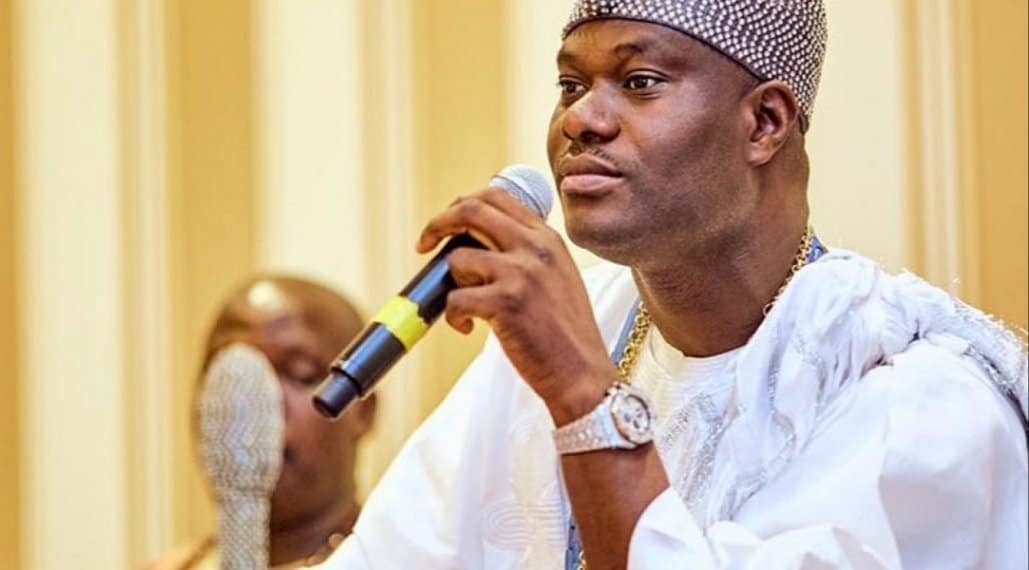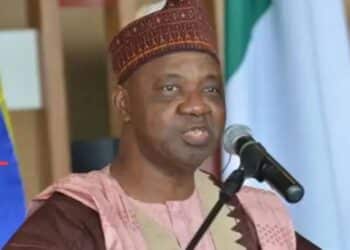The first military coup took place in Nigeria on January 15, 1966. The five military officers in the rank of Majors led by Major Nzeogwu Kaduna, announced the military take over of the civilian government led by Sir Abubakar Tafawa Balewa.
The young military officers claimed to have come, among others, to bring to an end, gangsterism and disorder, corruption and nepotism. However, with the benefit of hindsight, it has been revealed that there were more to it than the stated reasons for the military putsch.
Meanwhile, the tragedy of 1967 civil war is that many of its seeds were not, as is often claimed, sown in October or even July 1966, but in the 1960s or, as some see it, in 1914 or maybe even in 1900 itself. Investigations revealed that there were major factors responsible for the military coup of 1966, which included Unbalanced Federal Structure, Tribal/Regional Parties, Intolerance of Opposition and Controversies over Population Census.
Unbalanced Federal Structure
Political analysts are of the opinion that the genesis of the 1966 military coup was the 1914 amalgamation of the Northern and Southern Protectorates of Nigeria with one of the regions bigger in size and population than the other put together. According to them, the bringing together of diverse people with different socio-cultural background, level of education and development is seen as an unbalanced structure which naturally provokes suspicion and fear of domination by the minority ethnic groups in the country.
This phenomenon further confirmed that the Nigerian Army was Northern dominated to the magnitude of 70% in both cadres, officers and other ranks. This stricture of the dilemma of the Nigerian Army as an integral part of the body politic made it difficult to be completely free from the influences of politics in the country.
Tribal/Regional Parties
Another remote cause of the 1966 military uprising could be traced to the seed of tribalism and nepotism embedded in the formation of the three major political parties by the three major ethnic groups that were later to control the regional governments of their origin. The ethnic rivalry which began in 1941 between the Igbo and Yoruba members of the Nigerian Youth Movement (NYM) over the Ikoli-Akinsaya crisis resulted in the Igbo members leaving the party end mass and thus, reducing the NYM to a Yoruba organization. This was indeed the beginning of the plague on Nigerian politics ever since. Between 1941 and 1950, the unhealthy rivalry between the Igbo and Yoruba became so intensified even beyond the political turf that by 1948 Azikiwe had ceased to be Zik of Africa but Zik of the Igbo nation.
Also, lack of clear cut ideologies by most of the First Republic major political parties was also identified as a remote cause of the 1966 coup. The NPC was feudalistic and artistic which contrasted to its political bed mate, the NCNC that embraced, to some extent, egalitarian temperament while the Action Group (AG) preached democratic socialism. But, it was only the latter that showed some degree of commitment to its avowed ideology through the populist’s programmes which the party introduced in the Western Region.
Closely related to this was the role of the official opposition played by the Action Group which made the party’s leadership become vulnerable for political elimination because opposition which was a core element in the Westminster system practised in the First Republic is alien to African politics.
Intolerance of Opposition
The Action Group (AG) literally became a thorn in the flesh of the ruling parties especially with the ferocious criticisms and eventual defeat of the Anglo-Nigeria Defence Pact of 1961 with the support of the students of the University of Ibadan (UI). The NPC-NCNC foreign policy also came under the sledgehammer of the AG that also championed the cause of the minority ethnic groups who were agitating for additional state creation in the country.
The party, as reliably gathered was doing these in order to gain the people’s support so that it could win the next election and form the federal government. This threat, reasoned by the NPC-NCNC coalition government, had to be nipped in the bud somehow.
Controversy over Population Census
Yet, another contentious issue identified by analysts as a remote factor for the coup was the results of the 1962/63 population census. In Nigeria, census data are used as the basic determinant of constituency delimitation, allocation of seats at the legislature, sharing of revenue accruable from the federation pool and distribution of social amenities, among other uses. Therefore, little wonder that the census has been one of the sensitive political issues in Nigeria.
For instance, the 1952/53 census figure was used to allocate the 312 seats in the House of Representatives to the regions as follows: Northern Region -174, Eastern Region- 73, Western Region -62 and Lagos -3.
The census result which gave a total of 30.4million out of which 16.8 million were in the North, 7.2 million in the East, 6.1 million in the West and 0.27 million in Lagos which was used for the above allocation of seats was seen by the Southern political leaders structurally defective and it was hoped that the 1962/63 headcounts would be used to redress the perceived lopsidedness which was not to be because of the controversy that attended the results of the exercise from very sections of the country except the North. The cacophony over the 1963 census led to a big crisis that led to the break down of the alliance between the NPC and the NCNC and paved way for the new political alignment and realignment.
Idowu Ayodele sent in this piece from Ibadan

